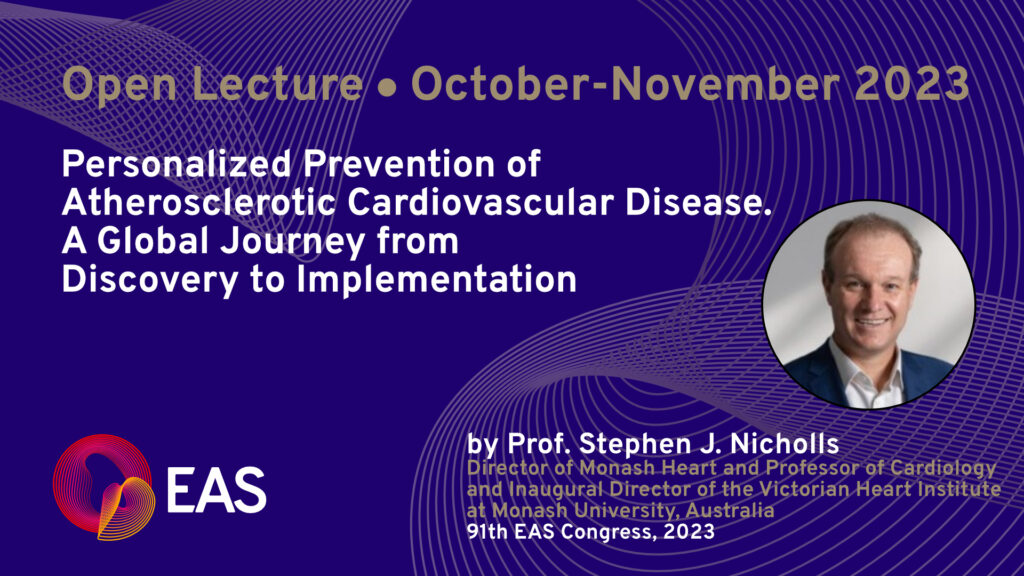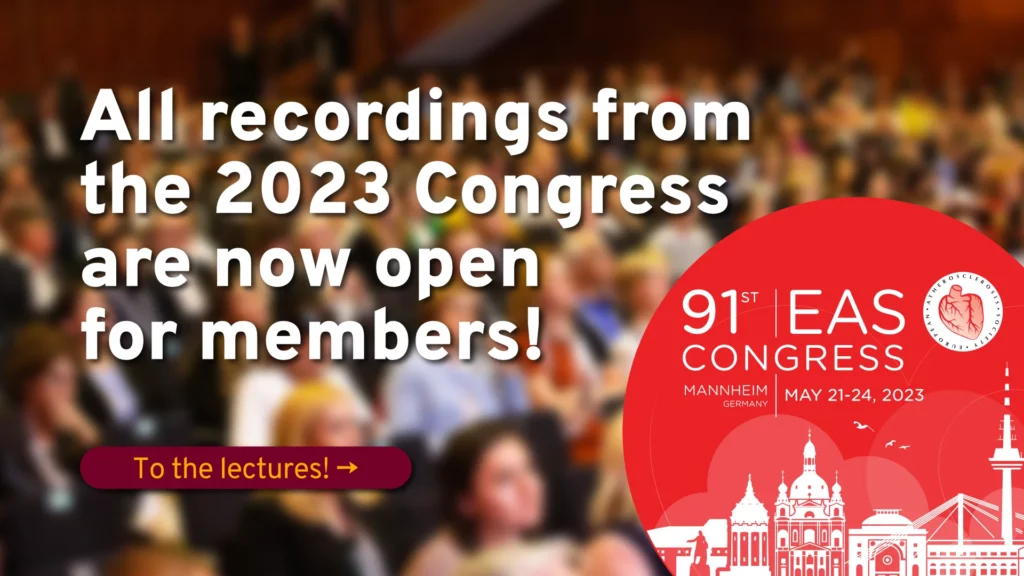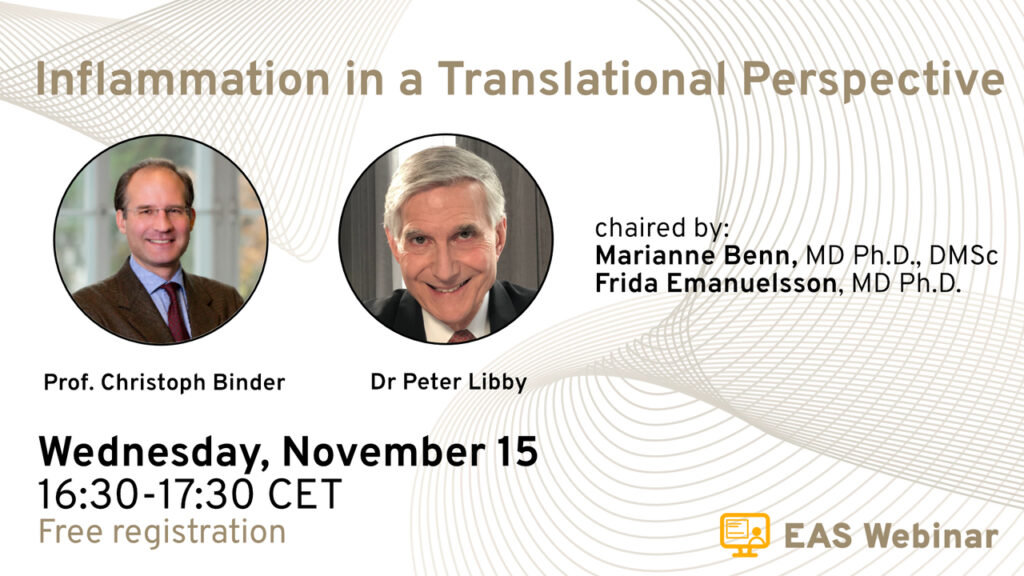EAS Academy Newsletter October 12, 2023
Featured Open Lecture: October-November, 2023

This is the 2023 Anitschkow lecture given by Professor Stephen Nicholls at the 91st EAS Congress.
Professor Nicholls is Director of Monash Heart and Professor of Cardiology and Inaugural Director of the Victorian Heart Institute at Monash University, Australia. He is President-elect of the Cardiac Society of Australia and New Zealand, President of the Australian Atherosclerosis Society and Founding Chair of the Asia Pacific Cardiometabolic Consortium.
In his state-of-the-art lecture, Professor Nicholls presented data on the HDL functionality and antiatherogenic role, as well as the effects of HDL on atheromatous plaque volume, in vivo. Subsequently, he discussed the effect of statins or their combination with antiPCSK9 mabs on plaque volume and composition. He also discussed results from clinical trials of the CETP inhibitors, Omega-3 fatty acids and bempedoic acid and presented ongoing clinical studies on Lp(a) and antidiabetic drugs. At the end of his lecture, he discussed the possible usefulness of polygenic risk scores for more efficient and intensive patient treatment. It is a very important and comprehensive lecture you should not miss.
To the Open Lecture by Prof. Stephen J. NichollsRediscover the magic of EAS Congress 2023 on EAS Academy!

Did you find yourself unable to attend some of the essential events? Don’t worry! Thanks to the EAS Academy, you now have the chance to make up for those missed experiences.
Delve into the extensive collection of recordings from the EAS Congress 2023, thoughtfully curated for your convenience and accessible on the EAS Academy!
As a privileged EAS member, you possess the key to unlock the entire EAS Academy archive, providing you with an unparalleled opportunity to stay at the forefront of your field. Your gateway to knowledge has never been more accessible!
Go to EAS Congress 2023 recordingsEAS Online course, Certificate of Excellence in Lipidology – 2023 Update

Due to the high prevalence of atherosclerotic vascular disease, clinicians often encounter challenges when addressing various facets of the condition. This initiative aims to enhance the quality of clinical care for individuals with cardiovascular disease or those seeking cardiovascular prevention.
Additionally, professionals in clinical science, epidemiology, and translational cardiovascular research will gain valuable insights that can enhance their respective fields of study.
The program introduces new areas of focus, including Remnant cholesterol, the application of polygenic risk scores in diagnosing combined dyslipidemia, and bempedoic acid. Furthermore, the multiple-choice questions (MCQs) for both pre and post-tests have been thoroughly reviewed and updated.
Find out more about the Certificate of Excellence in Lipidology – 2023 UpdateWebinar: Inflammation in a translational perspective, November 15

Cardiovascular diseases, including atherosclerosis, remain a significant global health concern. Researchers and healthcare professionals worldwide strive to uncover the complexities of this condition and develop effective preventive and treatment strategies.
To shed light on recent advancements in atherosclerosis research, a webinar is being organized with distinguished experts in the field. The webinar will begin with an introduction by chairs Prof. Marianne Benn and Dr. Frida Emanuelsson, setting the stage for an exploration of IgM antibodies in atherosclerosis.
Professor Christoph J. Binder, from the Medical University of Vienna, Austria, will delve into the intriguing role of IgM antibodies in atherosclerosis. His presentation will highlight the function of IgM antibodies, emphasizing their potential as key players in the development and progression of atherosclerosis. His insights, drawn from extensive research, suggest that IgM antibodies may hold the key to understanding and addressing this complex disease.
The second part of the webinar will focus on the crucial role of inflammation in atherosclerotic events. Prof. Libby will discuss the intricate relationship between inflammation and cardiovascular disease, shedding light on the mechanisms underlying this life-threatening condition. His research emphasizes the importance of understanding and targeting inflammation as a strategy to prevent and treat cardiovascular disease, offering hope for improved outcomes in cardiovascular care.
Following the presentations, the webinar opens the floor to the audience for a stimulating Q&A session. Attendees will be encouraged to submit their questions via the chat function, facilitating an interactive exchange of ideas and insights.
Go to the registration page